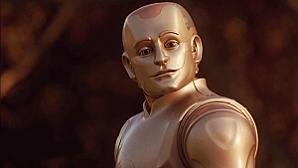Why I Dislike Sentimentality (And What That Says About Me)
- Essay

I’ve never liked overly sentimental or “cheesy” things, and for a long time I didn’t quite understand why. I used to assume it was just my ADHD being adversarial—rejecting emotional overload, resisting vulnerability, or struggling with emotional transitions. But that wasn’t the whole story.
This morning in the shower, it surfaced again:
Why don’t I know why I like or dislike things?
I know now—it’s because for most of my life, I didn’t know myself well enough to see when something was reflecting my own values back at me. How could I recognize a mirror when I didn’t yet know what I looked like?
That’s where my intuition came in.
I used to say things like:
“Hollywood doesn’t know how to make movies anymore.”
“This movie feels like the old days—when movies had heart.”
That was the only language I had to explain what I was responding to. But I was responding to agency, intention, and depth—qualities that reflect my core values. Now, with clarity and tools like SEER, I can dissect those reactions and name them with precision.
🍿 Why I Love (or Hate) Movies
It’s not about whether a film is “good” by industry standards. I can love a b-movie, a cheesy story, even a tonal mess—if it tries. If there’s a glimmer of meaning, some raw human intent, an echo of someone’s why behind the work, I’ll see it. I’ll feel it.
Some films are a mess because studios and publishers meddle—something I now recognize as its own violation of agency. Art becomes diluted when the creator’s voice is compromised. But even in that chaos, sometimes something real survives. And when it does, I notice. I’ve always noticed.
Now, I understand why.
🤖 Case Study: Bicentennial Man
I cry almost every time I watch it. I used to think it was the love story—a robot who becomes human for love. But now I know the truth:
It’s about agency.
Andy begins the story with no autonomy. He’s property. He seeks validation that he matters. He wants the world to recognize his humanity. But the real twist isn’t in the court ruling or the transformation.
It’s that Andy had agency all along.
It didn’t come from the outside. It came from within.
That’s why I love it.
🚀 Ender’s Game and Hidden Themes
It’s not just sci-fi. It’s not just tactics or clever writing.
It’s about manipulation and the theft of agency.
Ender is molded into something he never wanted to become. He’s used by adults, deceived into committing atrocities, and then left with the consequences. His final act of rebellion—compassion and refusal—is the reclaiming of self.
It resonates because the entire story whispers this theme beneath every beat:
You must own yourself.
🧠 ADHD, Empathy, and the Search for Pattern
For a long time, I didn’t know why I liked what I liked.
I felt everything intensely. But I didn’t know how to trace the signals back to their source.
ADHD scrambled my indexing system.
My empathy wasn’t projection—it was absorption.
I didn’t see myself in characters. I felt their wounds bleed into mine.
If someone lost their agency, I hurt. I didn’t understand that until now.
I felt it.
I just didn’t have the language.
Now I do.
🪞 Why I Share My Work
It’s not about being seen. It’s not even about helping others, though that happens.
I’m leaving myself breadcrumbs.
Dense meaning. Compressed. Not bound to form.
Fragments of truth I can pick up and realign with later.
Each piece I write is a mirror I’ve polished. Not because I’m searching for who I am—but because I finally know what I look like.
And that’s what this whole journey has been about.
✨ Final Truth
If a story cheats—if it uses sentiment as a shortcut—I feel it. If it earns its emotion through character, struggle, intention, and change, I resonate deeply.
That’s not pickiness.
That’s alignment.
No comments yet…